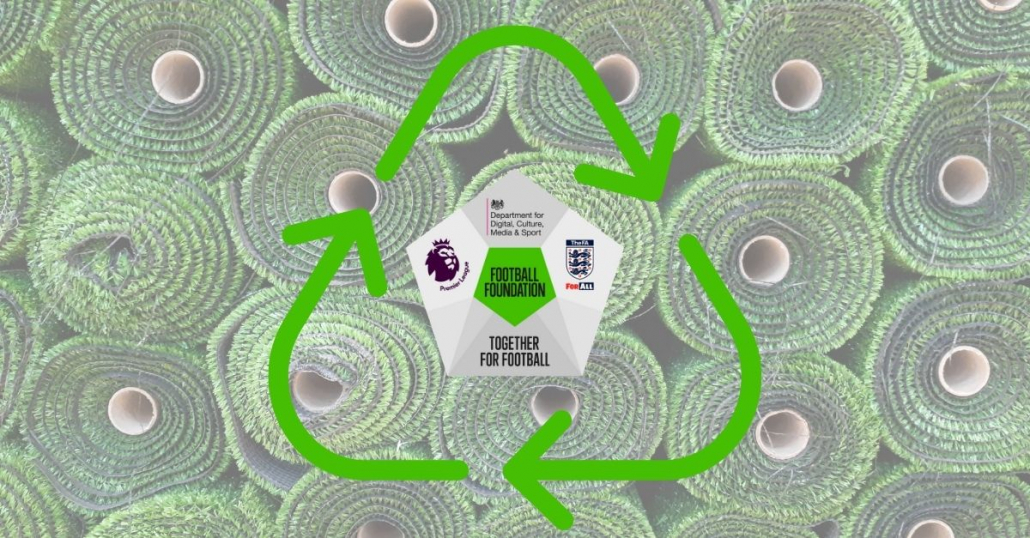The Football Foundation in the UK is taking a proactive approach to whenever they grant aid a project that involves the resurfacing or conversion of an existing synthetic turf pitch. Framework members bidding for projects will only be able to use the services of recycling companies using approved methods of recycling for the disposal of the old playing surface they are replacing.
UK legislation states that a synthetic turf sports surface that has reached the end of its service life and is lifted to enable replacement becomes a ‘waste’ material. The Football Foundation and its funding partners are concerned about the negative image and loss of accountability repurposing or dumping in land fill can create. In accordance with the basic principles of the handling of waste defined in the Waste Hierarchy, the Football Foundation prefers recycling over energy recovery or disposal whenever possible, be it through an open-loop or closed-loop system. To ensure that end of use synthetic turf is processed in a way they consider acceptable, a Football Foundation approved list of recycling companies for synthetic turf pitches is currently being prepared, with the asssitance of ESTC members. Only approved recycling companies and their listed processes will be authorised for use on synthetic turf framework funded projects. Inclusion in this list of a company or process does not remove the need for the recycling company or anyone using its services, from ensuring all aspects of the removal, handling and recycling of a synthetic turf pitch are undertaken in accordance with UK legislation. Criteria for inclusion on the list include:
- Whether the process has been audited and verified under a recognised environmental technology verification scheme (ETV), such as: EN ISO 14034, the EU’s ETV pilot programme; EN 1534, the EuCertPlast programme; or an internationally recognised equivalent;
- The use of a quality management system complying with EN ISO 9001;
- The use of an environmental management system certified to EN ISO 14001;
- The operator of any UK recycling site shall either have an appropriate Environmental Permit or be registered with the Environmental Agency for an appropriate waste exemption;
- Operators of recycling sites outside the UK shall provide proof that their operations and site have all the relevant and necessary permits;
- All work is undertaken in full compliance with the appropriate regulations.
DEALING WITH THE ISSUE
By taking a proactive and responsible approach to the disposal end of life synthetic turf, the Football Foundation is providing the market and the industry in the UK with clarity. With only a handful of companies currently being able internationally to recycle end of life synthetic turf, there is certainly a need for a framework and specific legislation. A recent study by Sports Labs showed that only 33% of the 117 people that responded to a questionnaire on recycling matters were aware of codes of practice. An alarming 29% were a member of industry bodies with no code of practice. 60% of the respondents indicated being dissatisfied to some degree with the level of recycling knowledge within the industry, while 60% also described the availability of recycling companies as dissatisfying.
TOUGH BUSINESS
Most European countries that have embraced synthetic turf currently do not have any or adequate recycling facilities to deal with the end of life synthetic turf . The fact that European legislation in general waste management is strong, whilst legislation to force owners to recycle is weak, does not make life easier. One of the remarks Sports Labs makes in their study is that dealing with end of life synthetic turf is an ‘all stakeholder’ problem. Designers and consultants should specify and select products, while owners should be made more aware of what happens to end of use turf systems. In short: the market needs to be educated but initiatives like this one of the Football Foundation will come in handy.
